I recently had separate discussions with different Jewish friends, touching on the Gaza pull-out and related matters. One, Staci, is a quite conservative Ashkenazi American with close family ties to Israel. She has some very sharp things to say about Palestinians in general, and is in favor of expansion of Israeli territory (she rebuked me for using the term "Palestinian", and mentioned the long ago withdrawal from the Sinai Peninsula in very grudging terms). The other, Hadar, is a pretty quite Separdic Israeli. I actually knew her for all of Tuesday evening, but we had a very long and ranging conversation. She had just completed her two year stint in the Israeli Army and was blowing off steam by backpacking the U.S. (her previous stop was Burning Man).
What I found fascinating was that even coming from separate ends of the political spectrum, they both had very similar views on the Gaza pull-out and the anticipated outcome therefrom. And just to be clear, I'm not entirely extrapolating from the opinions of two people in the following thoughts: I've had discussions (generally shorter) with others with some connection to the situation, and I do my best to keep well informed of developments in the news of that region.
Both of my friends thought that the Gaza and even the limited West Bank pull-outs were necessary. Staci thought that Israelis did have rights to those areas, but felt that the settlers should not be compromising general security by stubbornly camping out in areas she felt were to a great extent spoiled by the presence of so many Arabs. Hadar felt that it was necessary to establish sovereign territory for Palestinians in order to have any chance at peace, and that settlers were just making any such peace impossible (she did have some reservations, saying that if Palestinians are given the West Back too lightly, they would want all of Jerusalem, and even if they somehow got Jerusalem, they'd want Haifa, Netanya, Ashkelon, The Negev, you know, the whole bit). Both supported the withdrawal. I'd actually never expected there to be much violence in the withdrawal, and I think these two attitudes are a microcosm of why relatively orderly withdrawal was inevitable.
As for the effects, both surprised me by being very pessimistic about the outcome from the withdrawal. Staci went just about to the point of saying there would never be peace between Palestinians ("Arab refugees from Jordan", as I think she put it) and Israelis (and more generally Arabs and Jews). Hadar felt that the peace process would go nowhere despite the withdrawal, because it would give Palestinians nothing but excuse for obstinacy, and would lead to even more extravagant demands.
It's this juxtaposition that gets me. Both felt the pull-out was necessary, but both also felt that it would do nothing to bring about a real peace. I argued with both of them, saying that eventually Palestinians and Israelis would be forced to détente by simple economic need, just as sworn implacable foes Israel and Egypt had been. Those sworn to the annihilation of Israel would lose their foothold if Israel focused on security within its mainland rather than a diffident extension of territorial pseudopods. Palestinians free to erect the apparatus of state and social service where they live would be actually empowered to needed compromise in crafting a final accord.
Personally, I think that one of the greatest tragedies in this matter is that two separate groups of people were so terribly treated throughout the 20th century continue to beat each other to a pulp in the 21st. But that's just drippy sentiment. The reality is that as long as attitudes on the ground are so self-contradictory, it's hard to see how any move will lead to ultimate peace.

 Someone ("Youssouf") with a lot of time on their hands (quelle chance
pour lui) put together a satire comic based on a collage of pages from
the popular
Someone ("Youssouf") with a lot of time on their hands (quelle chance
pour lui) put together a satire comic based on a collage of pages from
the popular 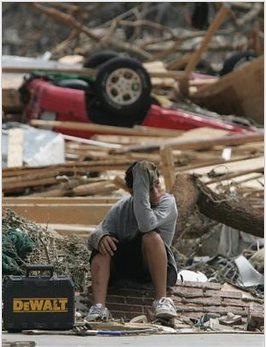
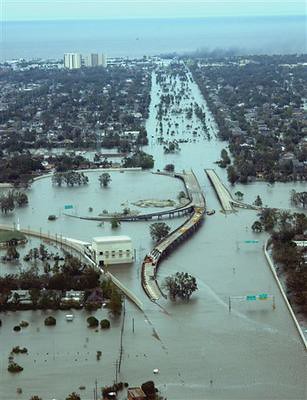

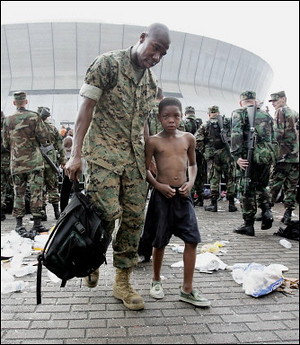


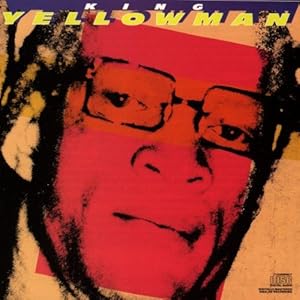 And sure we felt sorry for the folks suffering a local drought in Ethiopia, but our most immediate response was to feel sorry for the confused Brits. We were making our own "Do they know it's summertime" outreach long before the
And sure we felt sorry for the folks suffering a local drought in Ethiopia, but our most immediate response was to feel sorry for the confused Brits. We were making our own "Do they know it's summertime" outreach long before the 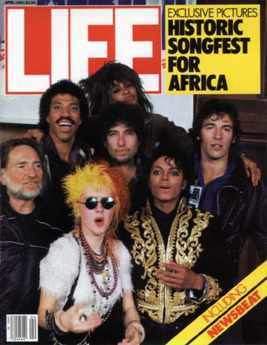 Heeee heee! And then Michael Jackson
Heeee heee! And then Michael Jackson